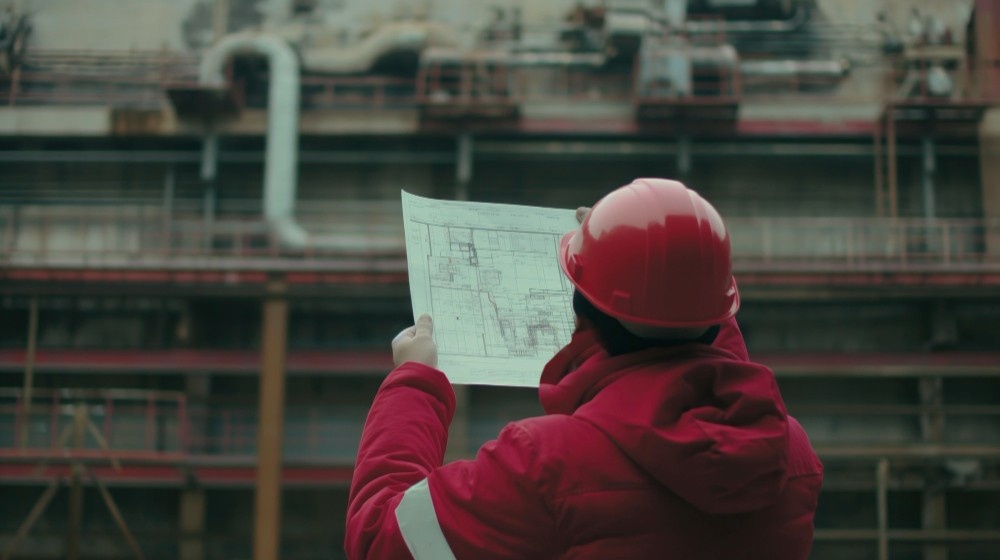
How to Choose the Right Contractor for Your Industrial Building Project?
Choosing the right contractor for an industrial building project is crucial to its success. Industrial construction projects often involve complex requirements, stringent timelines, and significant investments. Selecting a reliable and competent contractor ensures that the project is completed on time, within budget, and to the desired quality standards. Here are essential factors to consider when making this important decision:
Experience and Expertise
One of the first things to evaluate is the contractor’s experience and expertise in industrial construction. Look for contractors who have a proven track record of successfully completing projects similar in scope and scale to yours. Experience indicates familiarity with industry-specific challenges, regulations, and best practices. It also assures you that the contractor has the skills and resources to handle the complexities associated with industrial building projects, such as heavy equipment installations, specialized infrastructure requirements, and adherence to stringent safety standards.
Reputation and References
A contractor’s reputation within the industry and among previous clients is a valuable indicator of their reliability and performance. Seek references from past clients and industry peers to get firsthand insights into their experience working with the contractor. Online reviews, testimonials, and case studies can also provide valuable feedback regarding the contractor’s communication, problem-solving abilities, and overall project management capabilities. A reputable contractor should be transparent about their past projects and willing to provide references upon request.
Licensing and Credentials
Ensure that the contractor holds all necessary licenses, certifications, and credentials required to operate legally and perform construction work in your area. This includes general contractor licenses, specialized certifications for industrial construction, and compliance with safety and environmental regulations. Verifying their credentials helps mitigate risks associated with hiring unqualified contractors and ensures that the project meets regulatory standards throughout its lifecycle.
Financial Stability and Insurance Coverage
Financial stability is critical when selecting a contractor for an industrial building project, as it directly impacts their ability to manage project costs, procure materials, and pay subcontractors and suppliers on time. Request proof of the contractor’s financial stability, such as bank references or credit reports, to gauge their ability to handle the financial demands of your project. Additionally, verify that the contractor carries adequate insurance coverage, including general liability insurance and worker’s compensation insurance, to protect against potential liabilities and workplace accidents.
Project Management Approach
Evaluate the contractor’s project management approach and capabilities to ensure they align with your expectations and project requirements. Discuss how they plan to schedule and coordinate tasks, manage subcontractors, track progress, and communicate updates throughout the project lifecycle. A well-defined project management strategy demonstrates organizational competence and enhances transparency, fostering effective collaboration and timely decision-making.
Safety Record and Practices
Industrial construction sites pose inherent risks, making safety a paramount concern. Inquire about the contractor’s safety record, policies, and practices to ensure they prioritize workplace safety and adhere to industry-specific safety standards and regulations. A commitment to safety not only protects workers and mitigates risks but also reflects the contractor’s professionalism and dedication to delivering a secure working environment for all stakeholders involved in the project.
Communication and Compatibility
Effective communication is essential for the successful execution of any construction project. Evaluate the contractor’s communication style, responsiveness, and willingness to address your concerns and preferences. Clear and open communication fosters collaboration, reduces misunderstandings, and allows for timely resolution of issues as they arise. Additionally, assess the compatibility of your organization’s culture and values with those of the contractor to ensure a harmonious working relationship throughout the duration of the project.
Competitive Pricing and Value
While cost should not be the sole determining factor, it is important to obtain competitive bids from multiple contractors and carefully evaluate the proposed pricing structure and payment terms. Beware of significantly low bids that may indicate potential quality compromises or hidden costs. Instead, focus on value for money by considering the contractor’s reputation, experience, quality of workmanship, and overall ability to deliver the desired outcomes within budget constraints.
Wrapping Up
Choosing the right contractor for your industrial building project requires careful consideration of several key factors, including experience, reputation, credentials, project management capabilities, safety practices, communication skills, financial stability, and competitive pricing. By conducting thorough research, obtaining references, and engaging in detailed discussions with prospective contractors, you can make an informed decision that aligns with your project goals and ensures a successful outcome. Remember that selecting a reliable and competent contractor is a critical investment in the long-term success and sustainability of your industrial construction project.





